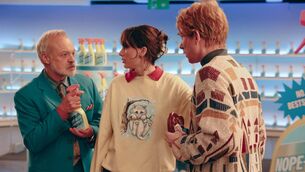Meet Jack Andraka, the 18-year-old whose invention will save lives

As a rule, an autobiography by anyone yet to sprout their first grey hair is best avoided. It’s likely by a second-team Premier league footballer with a demanding merchandising contract, or a TV talent-show star with a fast-approaching sell-by date.
So when an 18-year-old offers his life story to the public, it’s usually best to prepare to let the lad down gently.











